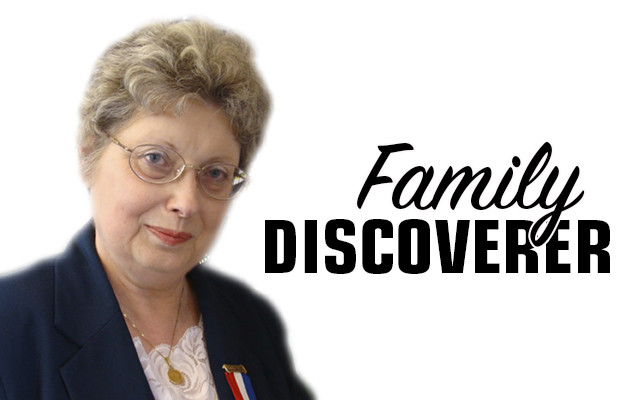
Joining lineage societies
By Nancy Battick
Have you ever wondered if you qualify for membership in a lineage society or how to join a fraternal organization — or if you have Scottish roots, how to join a clan? What’s the difference and what do you have to do to join?
A lineage society, such as the Sons or Daughters of the American Revolution or the Mayflower Society, is open to all who can prove descent from an ancestor qualifying you for membership. For example, if you want to join the DAR, you need to have a direct ancestor who either served as a soldier or sailor in the American Revolution or who performed a civic role in support.
Each lineage society, and there are many, has its own standards of what constitutes proof. Many require that you be recommended by an existing member. Almost all societies have a web presence, and if you’re interested you should explore the organization’s site. If the organization has a presence in your state or nearby, you might want to contact them to learn more.
Fraternal organizations are different. The word probably makes you think of a college fraternity. But organizations such as the Masons, the Grange and Shriners are all fraternal organizations. They don’t require you to have an ancestor who was a member — though often memberships run in families — but they usually require you to be recommended for membership. Fraternal organizations often have a secret initiation ritual.
Again, most fraternal organizations have a web presence, and you can always approach a state or local branch for more information.
Fraternal organizations often do a great deal of charitable work and the same is true for many lineage societies.
What about clans? We always associate that term with Scotland. These are surname organizations. Most allow you to apply for membership and submit your family lineage back to the ancestor whose surname qualifies you to join the clan. You don’t have to be a direct descendant of the clan chief, nor does your surname mean you are a descendant of an early chief, though you may be.
I’m a member of Clan Douglas and I qualify as a member of Clan Elliot. This means my ancestors lived on clan lands and owed loyalty to their clan leader. While they may be kin, they may not be, but in the event of war they fought under the leadership of their clan leader. Most clans have a web presence where you can learn more.
All these organizations charge a membership fee and some charge an application fee.
I use the term “direct descendant” in this column. That simply means proving a straight line between you and your qualifying ancestor. If it’s a paternal line, that means you, your father, grandfather, great-grandfather and on to the ancestor in question. A maternal line means mother, grandmother, great-grandmother, and so on.
If you are interested in one or more of these types of organizations, be sure to visit their web pages to learn more and make contact.
Columnist Nancy Battick of Dover-Foxcroft has researched genealogy for over 30 years. She is past president of the Maine Genealogical Society, author of several genealogical articles and co-transcribed the Vital Records of Dover-Foxcroft. Nancy holds an MA in History from UM. Reader emails are welcome at nbattick@roadrunner.com.